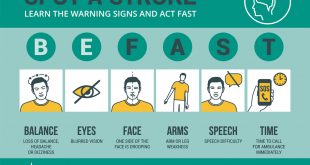By Michelle Locke – Master Life and Mindset Coach


The catalyst of any change is awareness. This month is great time to improve your own awareness of your personal finances, especially if you’d like to create better financial habits.
Below are 3 areas of focus to easily increase your financial awareness, and initiate the changes necessary to build better financial future.
What’s coming in. Sure, you know your salary or hourly wage, but do you know exactly what “income” that creates? If you are self-employed, do you know your revenue vs. expenses numbers? Don’t forget about additional income avenues: interest-bearing accounts, dividends, accounts receivable (including any personal loans you have made), child support, side hustles, etc. Taking the time to investigate what’s coming in can give you a “big picture” outlook that is beneficial to short-term planning and long-term financial strategy.
What’s going out. Typically we think we know where we are spending our money, but in reality, most people are blissfully unaware. I had a client exclaim, “Michelle, I spent $7,000 on Door Dash in the last six months…I had NO IDEA!” Unfortunately, this isn’t all that uncommon. Using a budgeting app like Mint or Rocket Money is a great way to see what’s really going on. Alternatively, a good, old-fashioned spreadsheet works just fine. However you choose to track you spending, knowledge is definitely power!
What you’re thinking. As strange as this may sound, what you think about money is just as important as what you do with your money. Why? Because what you think (and feel) is what motivates you to act. To be specific, the best way to create and stick to your new healthy money habits, is to start with your money mindset. If someone has anxeity around their money, or doubts their ability to create wealth, they will have much different results than someone who genuinely believes making money is easy for them. Why is this so?
Because each of those people will “show up” differently regarding money decisions and take different actions. As you are becoming aware of your financial income and outgo, take note of how you feel about your budget, and what your inner voice is telling you during the process. I’d wager you’ll be surprised at what you find!
Now that you are more aware of your financial picture, what’s next? It’s time to make some quality decisons, take some quality actions, and build quality habits.
• Step 1: Define your Goals. Utilize the S.M.A.R.T. goals method to make both shortand long-term goals. Ask pertinent questions such as: What do I want to achieve? What do I want to experience? Who do I want to help? What am I willing to do and to do without to accomplish these goals?
• Step 2: Divide and Conquer. For each overarching goal, you need to outline yearly, quarterly, and monthly goals. Each monthly goal can then be broken down into specific tasks and added to a calendar or weekly/daily schedule. (For example, “Pay Off Debt” may be a long-term goal. For each credit card or loan, determine how much you will pay and how often to achieve full payoff in the designated time. Now add each payment to your monthly bill schedule and watch those balances dwindle!)
• Step 3: Assess Obstacles. Clarify what is standing in your way. Is your outgo larger than your income? Is your debt too large to pay off in the desired amount of time? Are there factors outside your control? Identify possible pitfalls and plan for how you will handle each. This is the step where it may be beneficial to get some help. A financial advisor, a life coach, or even a trusted family member or friend may be able to support you through this step. The objectivity of someone outside of your circumstances can often make or break your plan.
• Step 4: Manage Your Mind. This is where the rubber really meets the road. You have your plan, you know what you need to do, and perhaps you have even begun to implement. But how do you stay on track when shiny object syndrome and keeping up with the Joneses are real? You’ll need more than willpower to make your goals happen. Erradicating limiting beliefs and a compelling reason to follow through with your plan are what will be needed to be successful. Again, employing some outside help here could be the winning move. Mindset coaches are skilled at fleshing out the mental gymnastics necessary to create and sustain new habits, which is the crucial step to any permanent change.
Your current money habits weren’t established overnight, and neither will your new ones be. Be patient with yourself as you gain awareness, identify dreams, set goals, and achieve the financial future you desire.
About Michelle Locke
Michelle Locke is a Master Certified Life and Mindset Coach with eight years experience. Through her coaching and training programs she helps her clients “fix what isn’t working” in their lives. About her method, she says, “Life coaching is about systems, plans, and habits; mindset coaching is the ‘secret sauce’ that makes the latter sustainable.” She lives in Ellenton with two of her five (mostly adult) children and a rescue hound named Ivy.
Michelle Locke Coaching
(786) 529-5279
michellelocke.coach
mlocke@michellelocke.coach
 Southwest Florida's Health and Wellness Magazine Health and Wellness Articles
Southwest Florida's Health and Wellness Magazine Health and Wellness Articles

